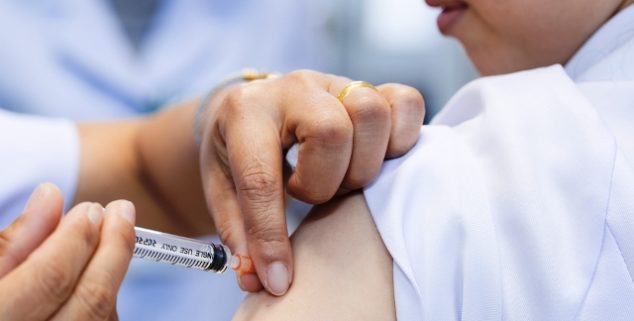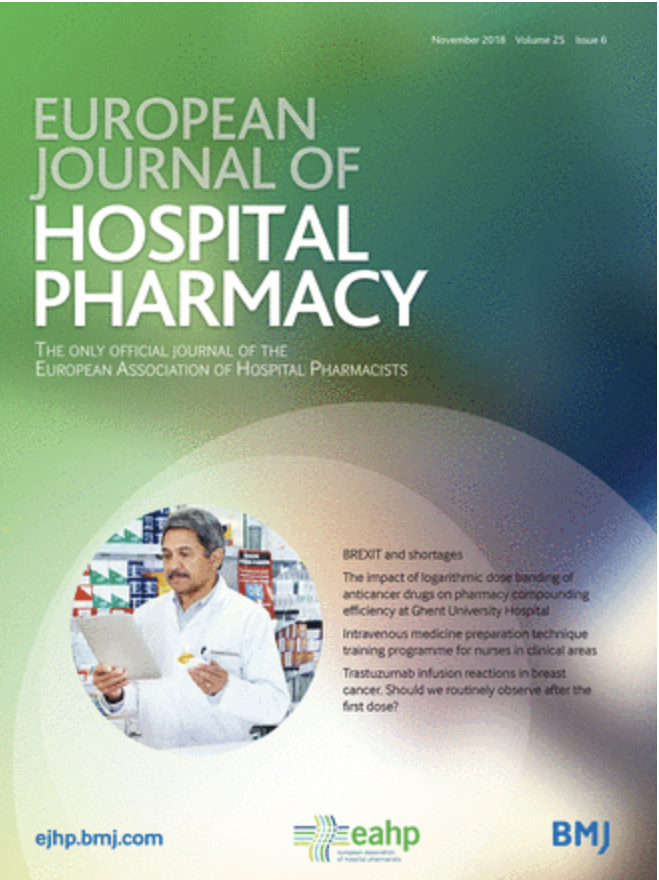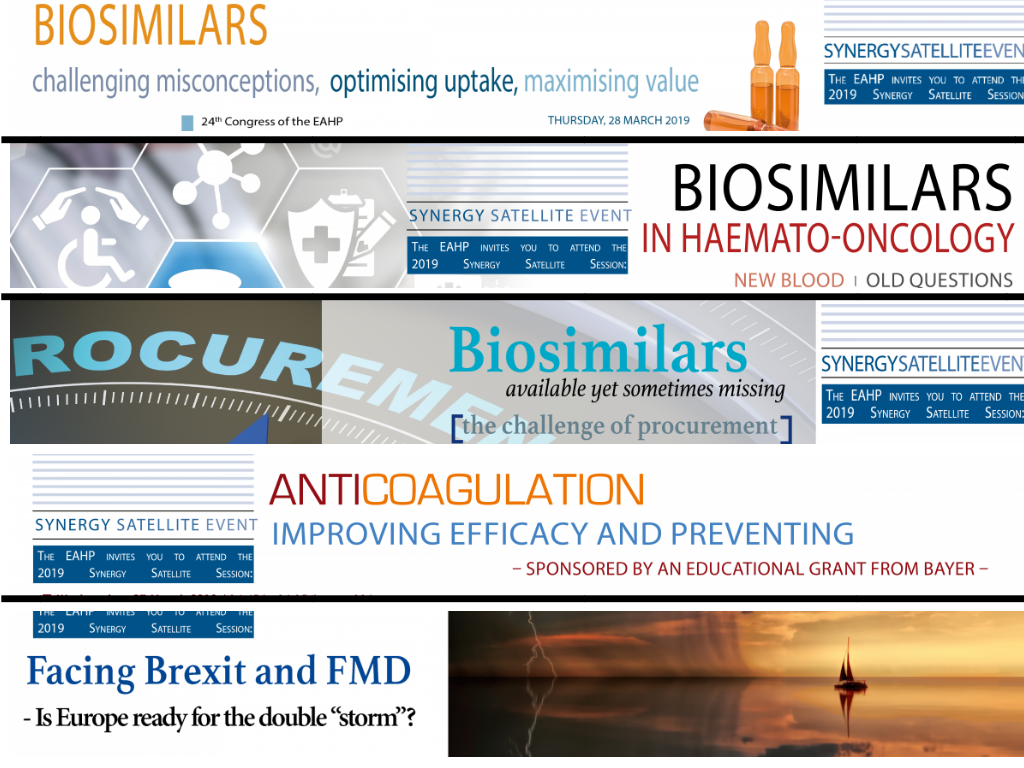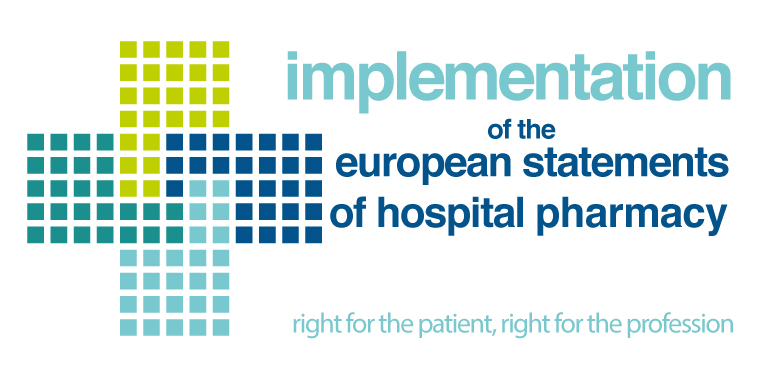EU Monitor –20/12 Newly added open learning course!
The EAHP EU Monitor is a regular round up of news relevant to hospital pharmacy in Europe.
You can subscribe to receive the EAHP EU Monitor by email HERE.
New course added to EAHP open learning environment

In 2018, the European Association of Hospital Pharmacists (EAHP) launched its open learning environment, a new educational module for the further development of the hospital pharmacy profession within Europe in order to ensure the continuous improvement of care and outcomes for patients in the hospital setting. A new module has been added this month to further enhance hospital pharmacists’ skills in the area of anticoagulation.
‘Anticoagulation from theory to practice’ aims at strengthening the role of the hospital pharmacist in maintaining the awareness of new agents, its management, adverse effects and educating the patients about their drugs and importance of adherence. During this open learning course, three pharmacist practitioners members of iPACT (International Pharmacists for Anticoagulation Care Taskforce), will present projects elaborated by pharmacists that contribute to a better care taking of patients suffering from atrial fibrillation.
All of EAHP’s open learning courses are accredited by the Accreditation Council for Pharmacy Education (ACPE) as a provider of continuing pharmacy education. Participants of the open learning course ‘Anticoagulation from theory to practice’will be entitled to 1.5 ACPE credits. These credits can be obtained after the completion of the course and a short survey.
Access EAHP’s open learning environment HERE
Join the 2019 Synergy Satellite events in Barcelona
This is a further call for participants to attend the Synergy Satellite events during the 24th Congress in Barcelona, Spain. In keeping with the main conference theme ("Personalised Hospital Pharmacy – meeting the needs of every patient") the 2019 Synergy Satellite events will focus on cutting edge innovation in service delivery and patient care. The following Synergy events will be hosted from 27th to 29th March 2019:
- Biosimilars – available yet sometimes missing – the challenge of procurement (sponsored by an education grant from Amgen)
- Anticoagulation – improving efficacy and preventing side effects (sponsored by an education grant from Bayer)
- Biosimilars: challenging misconceptions, optimising uptake, maximising value (financial support was provided by Pfizer Limited as a Medical and Educational Goods and Service)
- Biosimilars in haemato-oncology - new blood, old questions (sponsored by an education grant from Sandoz)
- Facing Brexit and FMD - Is Europe ready for the double “storm”?
The Synergy Satellite events are accredited high level sessions developed and managed by the EAHP Scientific Committee and supported by industry grants. The Synergy programme is based on a needs assessment conducted by the scientific committee and attending participants may obtain continuing education points. Registration is possible via our website. Participants that sign up by 31st January 2018 will profit from a reduced registration rate.
More information is available HERE
Register for the Congress in Barcelona HERE
Council recommendation on vaccine preventable diseases

On 7th December, the Health Ministers of the European Union adopted a Council Recommendation on strengthened cooperation against vaccine preventable diseases. The Recommendation touches on three key areas, namely tackling vaccine hesitancy and improving vaccination coverage, sustainable vaccination policies in the EU and EU coordination and contribution to global health.
Member States are encourages to develop and implement vaccination plans and to co-operate with higher education institutions and relevant stakeholders to consider including and strengthening training on vaccine-preventable diseases, vaccinology, and immunisation in national medical curricula and any continuing medical education programmes for healthcare workers. Moreover, the Recommendation highlights the importance of targeted outreach towards vulnerable groups and calls for the exploitation of synergies with eHealth and digital technologies to establish electronic vaccination records for all EU citizens.
Read the recommendation HERE
Council position on the protect of workers from exposure to carcinogens adopted

Last week, the Council adopted its position on the proposal for a Directive amending Directive 2004/37/EC on the protection of workers from the risks related to exposure to carcinogens or mutagens at work. The proposal of the European Commission to amend Directive 2004/37/EC seeks to reduce the exposure levels for 5 carcinogenic chemical agents - cadmium, beryllium, arsenic acid, formaldehyde and 4,4'-Methylene-bis (2-chloroaniline) (MOCA).
Over 1 million workers in the EU would benefit from the improvement of working conditions and over 22 000 cases of work-related ill-health could be prevented. The agreement that was reached by the Council in December will now serve as the basis for negotiations with the European Parliament.
Read more HERE
See the proposal of the European Commission HERE
Updates from the European Medicines Agency

In December, the European Medicines Agency (EMA) announced the commencement of a review of medicines containing Fosfomycin and shared recommendations on the alignment of doses of metamizole medicines and their use during pregnancy and breastfeeding. In addition, EMA announced that Omega-3 fatty acid medicines are no longer considered effective in preventing heart disease.
EMA begins review of medicines containing Fosfomycin
EMA has started a review of medicines containing the antibiotic fosfomycin, which is used in a number of EU member states to treat a range of bacterial infections.
Fosfomycin, an antibiotic that has been in use for many decades, works in a unique way and bacteria resistant to other antibiotics are less likely to be resistant to fosfomycin. There are significant differences between Member States in the authorised uses and doses of fosfomycin medicines.
The German medicines authority has requested reappraisal of the role of fosfomycin in the context of increasing resistance to antibiotics. In particular, the indications and dosage of fosfomycin and the adequacy of information on its safety and pharmacological properties will be re-evaluated in the light of up-to-date knowledge on antibacterial therapy.
EMA’s human medicines committee (CHMP) will therefore consider the available evidence and make recommendations as to whether the marketing authorisations for fosfomycin-containing medicines should be amended across the EU.
More information HERE
EMA recommends aligning doses of metamizole medicines and their use during pregnancy and breastfeeding
Following a review of medicines containing the painkiller metamizole, EMA is recommending that the maximum daily dose of the medicine and the contraindications to its use in pregnancy or women who are breastfeeding should be harmonised for all products on the EU market.
The review carried out by EMA’s human medicines committee (CHMP) at the request of Poland, which was concerned by the substantial differences in the recommendations on the use of metamizole in different EU countries, given that it is known the medicine may occasionally cause severe side effects, such as effects on the blood.
EMA’s recommendations include setting a maximum single dose by mouth of 1,000 mg, taken up to 4 times daily (a maximum daily dose of 4,000 mg), in patients from 15 years of age. If given by injection the total daily dose should not exceed 5,000 mg. Doses in younger patients should be based on their body weight but some products may be unsuitable because of their strength.
The review found little to suggest problems in early pregnancy, and single doses in the first 6 months might be acceptable if other analgesics cannot be used. However, there is some evidence of effects on the kidneys and circulation of the fetus if the medicine is used in the last 3 months of pregnancy, and the medicine should therefore not be used in this period. As a precaution, metamizole should not be used during breastfeeding because the infant may receive high amounts of the medicine in the milk relative to the infant’s weight.
More information HERE
Omega-3 fatty acid medicines no longer considered effective in preventing heart disease
EMA has concluded that omega-3 fatty acid medicines are not effective in preventing further heart and blood vessels problems in patients who have had a heart attack. The conclusion, based on a review of data accumulated over the years, means that these medicines will no longer be authorised for such use.
Omega-3 fatty acid medicines have been authorised for use after a heart attack, in combination with other medicines, in several EU countries since 2000, at a dose of 1 g per day. At the time of their authorisation, available data showed some benefits in reducing serious problems with the heart and blood vessels, although the benefits were considered modest. Further data that have become available since then have not confirmed the beneficial effects of these medicines for this use.
Although there are no new safety concerns, EMA’s human medicines committee (CHMP) concluded that the balance between the benefits and risks of these medicines to prevent recurrence of heart disease or stroke is now negative.
These medicines can still be used to reduce levels of certain types of blood fat called triglycerides.
More information HERE
EJHP: Emergency drug kits at the Danish hospital pharmacies: varying management and challenges

The online first edition of the European Journal of Hospital Pharmacy (EJHP) recently published an original article on emergency drug kits (EDKs) at Danish hospital pharmacies. The article outlines that the management of the EDKs in Denmark varies greatly among the hospital pharmacies. Consequently, national requirements should be established to ensure the quality.
Read more: HERE
[EAHP Statement Corner]
Have you completed your SAT?
EAHP’s online Self-Assessment Tool (SAT) aims at helping hospital pharmacists with the assessment of their Statement implementation status. More than 90 hospitals have already used this tool to review their level of compliance and to work on the improvement of the level of Statement implementation in their hospital pharmacy. To facilitate the use of the tool by its members, EAHP has translated the SAT into 9 different languages (English, French, Greek, Hungarian, Italian, Polish, Romanian, Spanish and Turkish). In case you have not yet obtained your personalised action plan, make sure to complete your assessment with the SAT via the following LINK.
------------------------------------------------------------------------------------------------

Consultations
COST Action CA 15105 - Disruptions, Vulnerabilities and Resilience Strategies in the Pharmaceutical Supply Chain
A researcher of the COST Action CA 15105 on medicines shortages invites you to participate in a consultation on disruptions, vulnerabilities and resilience strategies in the pharmaceutical supply chain. This study seeks to examine why the pharmaceutical supply chain in the UK is susceptible to the impact of disruptions and how resilience strategies can be used to mitigate the impact of these disruptions.
Deadline – 31st December 2018
More information HERE
KU Leuven - Tendering for biological medicines
The research unit of the faculty of Pharmaceutical Sciences at KU Leven invites you to participate in a survey aiming to map and investigate the practices and experiences with tendering for biological medicines (including biological reference products and their biosimilars) in the EU Member states and countries in the European Economic Area. Hospital pharmacists and procurers are especially encouraged to partake in the survey to share their experience and practices with tendering for biological medicines.
More information HERE
Deadline – 31stDecember 2018
Commission - Public consultation on the evaluation of the legislation on medicines for children and rare diseases
Healthcare professionals as well as private citizens are encouraged to share their experiences with and perspectives on access to orphan medicines in general, and on the role the EU Orphan Regulation plays in the development of orphan medicines.
Deadline – 11th January 2019
More information HERE
EDQM – European Paediatric Formulary consultation
The European Directorate for the Quality of Medicines & HealthCare (EDQM) has launched a public consultation on the first two pilot monographs and on two general texts for its European Paediatric Formulary. European pharmacists and paediatricians are invited to share their feedback on the draft monographs on Hydrochlorothiazide oral solution and on Sotalol oral solution.
Deadline – 31stJanuary 2019
More information HERE
EMA - Draft guideline on clinical investigation of medicinal products in the treatment of epileptic disorders
The present document is a third revision of the existing guideline. The main changes to the existing guideline include incorporation of the new classification / definitions of seizure types and epilepsies, the acceptance of add-on studies in support of a monotherapy claim on a case-by-case basis, the inclusion of new sections on neonates and status epilepticus and other changes related to paediatric developments. The scope of this document is restricted to treatment of seizures in epileptic disorder although there are some remarks concerning non-seizure features of epilepsy syndromes.
Deadline – 17th February 2019
More information HERE
Survey on patients opinion about drug shortages
COST Action CA 15105 on medicines shortages invites you to participate in a qualitative study regarding patients’ perspective about medicine shortages during hospital stay. Hospital pharmacists are encouraged to question interested patients who are willing to share their experience with medicines shortages. Questions in relation to this survey activity can be address by email to Darija Kuruc Poje (darijakuruc21[at]gmail[dot]com).
Deadline – 1stMarch 2019
Access the survey HERE






